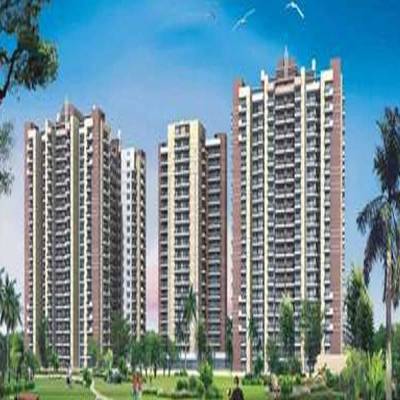- Home
- Real Estate
- The Expert Angle

The Expert Angle
This article proposes to suggest and discuss an alternative method of resolving construction disputes with respect to variations during the course of the project without recourse to an elaborate dispute resolution mechanism, thereby reducing the contractor´s burden of cash flow issues while protecting the principal´s rights on legal issues of variation to be dealt with other disputes, if any, at the end or termination of the project through a dispute resolution mechanism.
Contract variations
Construction contract variations are often a major source of disputes between principals or owners and contractors. Variations may be required for diverse reasons including latent site conditions, design defects, changes in law, instructed changes to works and value engineering.
The principal´s requirement is that the contractor complies with its variation requirements provided that such requirements: 1) are not materially different from the original work of the contractor; 2) are within the ability of the contractor; and 3) are required to be undertaken at a reasonable time; for example, well before practical completion or taking over of the project.
Typically, the contractor is appointed after an elaborate selection process and the project works may be at a significantly advanced stage when the need for variation arises. In such circumstances it would be difficult, if not impossible, for the principal to carry out variations on its own or through another contractor. Sometimes, the contractor is forced to carry out certain works beyond the original scope of work. However, if the contractor demonstrates that the variation is beyond the contractor´s ability, it is customary for the works superintendent under the contract to decide to cancel, confirm or vary the variation instructions.
While it is important for the principal to protect its rights to cause the contractor to undertake variations, it is equally important for the contractor to protect its own rights to recovery of costs, profits and, where applicable, extension of time for project completion.
The role of the works superintendent
It is common in construction contracts that whenever there is a claim by the contractor that a particular requirement, whether arising out of the principal´s requirement or request by the contractor, is a variation, the works superintendent decides if the requirement is a variation and the consequences of that determination. The works superintendent is a person appointed by the principal and paid for by the principal. The works superintendent decides: 1) whether the requirement is truly a variation or part of the original scope of work of the contractor under the contract; 2) objections to, or feasibility of, such work being undertaken by the contractor; 3) the quantum or cost and/or profits, if at all, to be paid by the principal to the contractor; and 4) entitlement of the contractor to extension of time.
In the event of a dispute between the principal and the contractor as to whether a particular requirement of the principal or request by the contractor is in fact, a variation or part of original scope of work of the contractor, if the works superintendent concurs with the principal, the contractor´s remedy would be to have recourse under the contract´s dispute resolution mechanism.
The dimensions of variation claims
In some standard form contracts, the dispute resolution mechanism has two tiers. At the first level, a dispute resolution board, which is constituted under the contract, attempts a resolution and if unsuccessful, the aggrieved party may invoke the arbitration mechanism.
Often disputes are aggregated and dealt with in a single arbitration at the end of the contract.
Most variation claims have two dimensions: The technical dimension and the legal or contractual dimension. Examples of the technical dimension are whether work constitutes a variation, what monetary compensation should be paid and if the contractor is entitled to an extension of time. Examples of the legal or contractual dimension include: Was the process prescribed followed? Were notice of claims and supporting documents submitted in the specified period? Is substantive compliance of the procedure sufficient to notify claims under the Agreement? Did the parties waive the requirement of process? Is it contractually possible to prescribe a period lesser than as provided in a statute for lodging of a claim, and if not lodged would the claim be barred? Would the consequences of variations be governed by contractual provisions or under the principle of quantum merit? Understanding these different dimensions to variation claims is the basis for suggesting a third method of dispute resolution for variation claims.
Expert determination
The third option worthy of consideration in the resolution of variation claims is expert determination, that is, an independent expert (´Expert´) is appointed at the request of either party to determine: 1) Whether the proposed work constitutes a variation; 2) If so, what compensation should be paid to the contractor; and 3) The extension of time that may be appropriate as a result of the variation.
The Expert´s determination that the work is a variation and the monetary entitlement of the contractor should be final and binding on the parties and the dispute resolution forum, unless of course the Expert´s determination is vitiated by facts like fraud or bias. Also, once the Expert has made his final determination, irrespective of whether the contract procedure is followed or not, the principal must be bound to compensate the contractor in a timely manner so that the contractor´s cash flow is not prejudiced. It is presumed that contractual provision, if at all required considerations for determining if a particular work is a variation or not, would generally be technical in nature and/or can be interpreted by a person of ordinary prudence and, hence, would be in the domain of the Expert. The Expert would not be required to determine contractual and legal matters such as whether procedure was followed or not, whether procedures were waived, whether there was inducement by the principal or works superintendent to carry out the work with a promise to consider the matter later or the like. If the principal chooses to dispute the decision of the Expert, for example, on grounds that the procedure prescribed is not followed, the principal would still have to pay the compensation determined by the Expert, and in that case, the contractor would secure the owner with irrevocable bank guarantee deposited with an escrow agent. In such cases, the bank guarantee charges would always be borne by the principal. The principal should make payment in the first instance because the principal will have the benefit of the variation work having been completed.
The benefits
The suggested expert determination mechanism has the benefit of quickly resolving technical issues that may sometimes be considerable and complex, and ensuring fairness between the parties. In some cases, it has been noticed that the evidence required for determination gets lost or diluted if disputes are not adjudicated quickly. At the same time, expert determination provides protection to the principal with respect to contractual and legal issues. The contractor does not suffer any cash-flow prejudice and the principal is still entitled to the benefit of the dispute resolution process on legal issues at the end of the project or termination of the contract, as the case may be. Expert determination is binding on subsequent dispute resolution processes initiated by either party and thus functions as a practical alternative for fast-track resolution of variation claims.
In large projects, there are usually numerous claims regarding variations. Parties should not be required to go through the elaborate dispute resolution processes of pre-arbitration and arbitration every time there is a dispute or disagreement. Moreover, most arbitral tribunals have recourse to expert opinion if there is a dispute about whether particular work constitutes a variation and what the monetary entitlement of the contractor should be, and it is worthwhile to complete the process - that too, conclusively, much in advance.
About the author:
Sudip Mullick is a partner with the Real Estate team of Khaitan & Co. He specialises in general commercial contracts including construction contracts, disputes resolution relating to real estate and construction contracts.
SUDIP MULLICK discusses an alternative method of dispute resolution for variations in construction contracts. This article proposes to suggest and discuss an alternative method of resolving construction disputes with respect to variations during the course of the project without recourse to an elaborate dispute resolution mechanism, thereby reducing the contractor´s burden of cash flow issues while protecting the principal´s rights on legal issues of variation to be dealt with other disputes, if any, at the end or termination of the project through a dispute resolution mechanism. Contract variations Construction contract variations are often a major source of disputes between principals or owners and contractors. Variations may be required for diverse reasons including latent site conditions, design defects, changes in law, instructed changes to works and value engineering. The principal´s requirement is that the contractor complies with its variation requirements provided that such requirements: 1) are not materially different from the original work of the contractor; 2) are within the ability of the contractor; and 3) are required to be undertaken at a reasonable time; for example, well before practical completion or taking over of the project. Typically, the contractor is appointed after an elaborate selection process and the project works may be at a significantly advanced stage when the need for variation arises. In such circumstances it would be difficult, if not impossible, for the principal to carry out variations on its own or through another contractor. Sometimes, the contractor is forced to carry out certain works beyond the original scope of work. However, if the contractor demonstrates that the variation is beyond the contractor´s ability, it is customary for the works superintendent under the contract to decide to cancel, confirm or vary the variation instructions. While it is important for the principal to protect its rights to cause the contractor to undertake variations, it is equally important for the contractor to protect its own rights to recovery of costs, profits and, where applicable, extension of time for project completion. The role of the works superintendent It is common in construction contracts that whenever there is a claim by the contractor that a particular requirement, whether arising out of the principal´s requirement or request by the contractor, is a variation, the works superintendent decides if the requirement is a variation and the consequences of that determination. The works superintendent is a person appointed by the principal and paid for by the principal. The works superintendent decides: 1) whether the requirement is truly a variation or part of the original scope of work of the contractor under the contract; 2) objections to, or feasibility of, such work being undertaken by the contractor; 3) the quantum or cost and/or profits, if at all, to be paid by the principal to the contractor; and 4) entitlement of the contractor to extension of time. In the event of a dispute between the principal and the contractor as to whether a particular requirement of the principal or request by the contractor is in fact, a variation or part of original scope of work of the contractor, if the works superintendent concurs with the principal, the contractor´s remedy would be to have recourse under the contract´s dispute resolution mechanism. The dimensions of variation claims In some standard form contracts, the dispute resolution mechanism has two tiers. At the first level, a dispute resolution board, which is constituted under the contract, attempts a resolution and if unsuccessful, the aggrieved party may invoke the arbitration mechanism. Often disputes are aggregated and dealt with in a single arbitration at the end of the contract. Most variation claims have two dimensions: The technical dimension and the legal or contractual dimension. Examples of the technical dimension are whether work constitutes a variation, what monetary compensation should be paid and if the contractor is entitled to an extension of time. Examples of the legal or contractual dimension include: Was the process prescribed followed? Were notice of claims and supporting documents submitted in the specified period? Is substantive compliance of the procedure sufficient to notify claims under the Agreement? Did the parties waive the requirement of process? Is it contractually possible to prescribe a period lesser than as provided in a statute for lodging of a claim, and if not lodged would the claim be barred? Would the consequences of variations be governed by contractual provisions or under the principle of quantum merit? Understanding these different dimensions to variation claims is the basis for suggesting a third method of dispute resolution for variation claims. Expert determination The third option worthy of consideration in the resolution of variation claims is expert determination, that is, an independent expert (´Expert´) is appointed at the request of either party to determine: 1) Whether the proposed work constitutes a variation; 2) If so, what compensation should be paid to the contractor; and 3) The extension of time that may be appropriate as a result of the variation. The Expert´s determination that the work is a variation and the monetary entitlement of the contractor should be final and binding on the parties and the dispute resolution forum, unless of course the Expert´s determination is vitiated by facts like fraud or bias. Also, once the Expert has made his final determination, irrespective of whether the contract procedure is followed or not, the principal must be bound to compensate the contractor in a timely manner so that the contractor´s cash flow is not prejudiced. It is presumed that contractual provision, if at all required considerations for determining if a particular work is a variation or not, would generally be technical in nature and/or can be interpreted by a person of ordinary prudence and, hence, would be in the domain of the Expert. The Expert would not be required to determine contractual and legal matters such as whether procedure was followed or not, whether procedures were waived, whether there was inducement by the principal or works superintendent to carry out the work with a promise to consider the matter later or the like. If the principal chooses to dispute the decision of the Expert, for example, on grounds that the procedure prescribed is not followed, the principal would still have to pay the compensation determined by the Expert, and in that case, the contractor would secure the owner with irrevocable bank guarantee deposited with an escrow agent. In such cases, the bank guarantee charges would always be borne by the principal. The principal should make payment in the first instance because the principal will have the benefit of the variation work having been completed. The benefits The suggested expert determination mechanism has the benefit of quickly resolving technical issues that may sometimes be considerable and complex, and ensuring fairness between the parties. In some cases, it has been noticed that the evidence required for determination gets lost or diluted if disputes are not adjudicated quickly. At the same time, expert determination provides protection to the principal with respect to contractual and legal issues. The contractor does not suffer any cash-flow prejudice and the principal is still entitled to the benefit of the dispute resolution process on legal issues at the end of the project or termination of the contract, as the case may be. Expert determination is binding on subsequent dispute resolution processes initiated by either party and thus functions as a practical alternative for fast-track resolution of variation claims. In large projects, there are usually numerous claims regarding variations. Parties should not be required to go through the elaborate dispute resolution processes of pre-arbitration and arbitration every time there is a dispute or disagreement. Moreover, most arbitral tribunals have recourse to expert opinion if there is a dispute about whether particular work constitutes a variation and what the monetary entitlement of the contractor should be, and it is worthwhile to complete the process - that too, conclusively, much in advance. About the author: Sudip Mullick is a partner with the Real Estate team of Khaitan & Co. He specialises in general commercial contracts including construction contracts, disputes resolution relating to real estate and construction contracts.



















